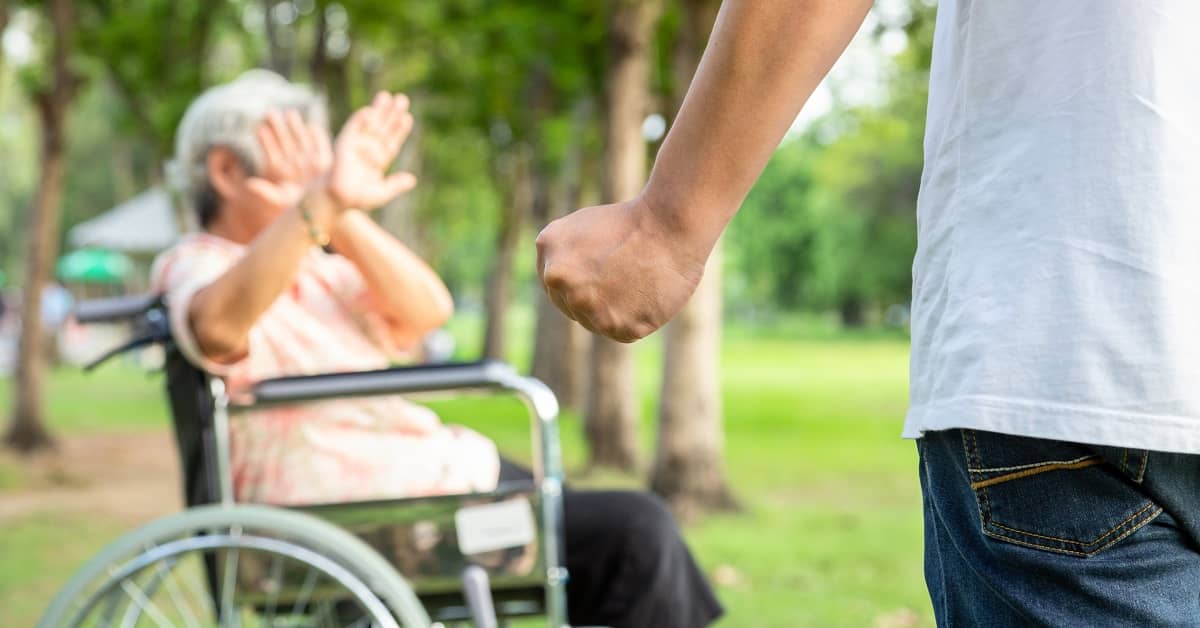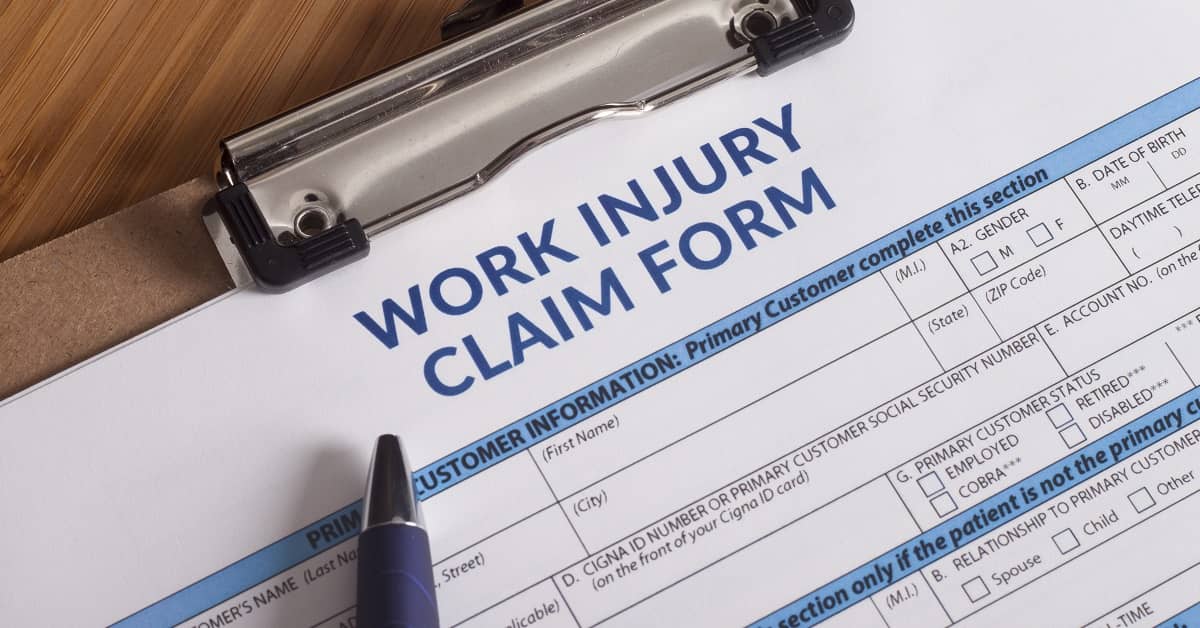Know the Signs of Nursing Home Abuse
The decision to put a loved one into a nursing home or long-term care facility is a difficult choice to make. You want to know that your family member will be well cared for in a safe, clean environment.
Unfortunately, some nursing homes take advantage of elderly residents. Nursing home abuse can be difficult to spot, but there are indicators you can look for to ensure your loved one isn’t being mistreated by the very facility you hoped would give them the best care possible.
If your elderly loved one has been seriously injured or died as a result of nursing home abuse, Colling Gilbert Wright can help. Our attorneys have decades of experience serving families in claims against nursing homes and other care facilities.
Please call (407) 712-7300 today for a free case review. Our nursing home abuse lawyers serve clients in Orlando, Tampa, Miami, and throughout Florida.
1. Visible Injuries
The most obvious sign that a resident of a nursing home is being abused is an injury or injuries without clear cause. Physical abuse in a nursing home can take many different forms, so it is important to look for injuries such as:
- Bruises
- Cuts
- Sprains, strains, and other soft tissue injuries
- Dislocations
- Broken bones
- Marks around the neck suggestive of choking or use of restraints
- Destroyed personal items (such as eyeglasses) and belongings
Some injuries may genuinely be the result of an accident. Elderly people are vulnerable to falls and other mishaps that may result in injury.
However, in the event of an accident, the facility should notify you promptly and provide a reasonable explanation for how your loved one got hurt. If you are dissatisfied with the explanation or suspect that your relative was intentionally harmed, you may want to consider contacting a nursing home abuse lawyer.
2. Behavioral Changes
Changes in the way your loved one behaves could be the result of aging. A decline in physical health and ability may be accompanied by depression, and some conditions may affect mental faculties and mood.
However, if your loved one begins exhibiting drastic behavioral changes while residing in a nursing home, this could be an indicator of abuse. Keep an eye out for the following:
- Withdrawal from visitors and other residents
- Loss of interest in activities
- Feelings of paranoia
- Agitation
- Fearful or combative behavior toward a specific caregiver (or multiple caregivers)
Abused nursing home residents may be afraid to name their victimizers. However, behavior like the above may represent a “cry for help” that family members should heed.
3. Bedsores
One of the major signs that an elderly or infirm resident is being neglected in a nursing home is the development of bedsores. Bedsores form as a result of constant pressure on the skin. The pressure restricts blood flow, causing sores to form.
Nursing home residents with mobility issues (such as those who are unable to turn themselves in bed) are at risk for bedsores without proper, attentive care. Without treatment, bedsores can become progressively worse, damaging tissue beneath the skin and potentially causing an infection.
4. Financial Difficulties and Irregularities
Not all nursing home abuse results in physical harm. Unscrupulous caregivers may also abuse and exploit residents for financial gain.
The following situations may indicate financial abuse:
- Missing money and valuables from your loved one’s room
- Unexplained withdrawals and overdrafts
- Suspicious credit card purchases
- Difficulty paying bills and affording necessities such as food, medications, etc.
- Caregivers added as authorized users on your loved one’s bank accounts and credit cards
- Caregivers added as beneficiaries on your loved one’s will and/or life insurance
Some cases of financial abuse in a nursing home setting involve caregivers who threaten or extort residents. In other cases, caregivers may exploit a senior with diminished capacity for their own profit.
5. Torn and Soiled Clothing
Several concerns may be involved if you routinely observe your loved one and other residents of the nursing home wearing damaged or unclean clothes:
- Understaffing: Poorly staffed nursing homes may fail to launder residents’ clothes or assist residents with their laundry.
- Unsanitary conditions: The facility itself may not be kept clean. When combined with neglect and lack of staff, residents’ clothes (and their personal hygiene as a whole) may suffer.
- Physical and/or sexual abuse: Clothing may be ripped or torn when a resident is attacked by a caregiver.
Nursing home residents often require assistance with bathing, grooming, and other daily activities. If your loved one suffers from poor hygiene, this may be a sign of neglect or abuse.
6. Malnutrition and Dehydration
Significant weight loss is always cause for concern. Although some seniors suffer from medical conditions that cause them to lose weight, unexplained weight loss may indicate that your loved one is not receiving adequate nutrition.
Dehydration is another common sign of nursing home abuse and neglect. Caregivers may overlook or ignore residents who ask for a drink, or fail to provide assistance to those who have difficulty drinking on their own.
7. Medication Issues
Many seniors require one or more medications to manage various health conditions, relieve pain, etc. Nursing homes have a duty to administer residents’ medications properly. Unfortunately, caregivers may neglect, misuse, and abuse this responsibility in a variety of ways:
- Missing doses of a resident’s medication
- Providing the wrong dose of a particular medication
- Administering the wrong medication
- Withholding medication from the resident
Caregivers may also abuse medications in order to control nursing home residents. Instead of employing physical restraints, staff may negligently employ heavy sedatives and other medications to make residents more compliant.
8. Worsening Health
For a number of seniors, physical decline is an unfortunate part of aging. Loss of physical strength, difficulty performing tasks on one’s own, and vulnerability to illness and infection are all issues frequently observable among nursing home residents.
However, if your loved one’s health is suddenly taking a turn for the worse, it is time to start determining whether or not your family member is receiving the proper care. Potential signs of abuse and neglect in these situations include:
- Uncontrolled infections
- Worsening medical conditions that were previously manageable with medication
- Inconsistencies and errors in the medication your loved one receives
- Inadequate monitoring of your loved one’s condition
- Failure to transport your loved one to the hospital in the event of a medical emergency
Family members should be notified when a nursing resident becomes seriously ill. If the facility failed to communicate your loved one’s condition to you in a timely fashion, it may be time to take action on their behalf.
9. Unsafe Premises
The grounds of a nursing home should be designed so residents can easily and safely move about the facility. Many residents suffer from mobility issues, requiring the assistance of a cane, walker, or wheelchair to get around, and the nursing home should be able to accommodate these needs.
If you observe safety and security issues on the premises, such as fall hazards, loose handrails, doors that don’t lock, etc., you should report them to the management of the facility. If the issue is not addressed or you continually see problems on the property, this may indicate that the nursing home is understaffed or that the caregivers are neglecting the safety of residents.
10. Misconduct on the Part of a Caregiver
We expect the staff at a nursing home to be friendly, caring individuals who put our loved ones’ health, safety, and quality of life first. Unfortunately, negligent and abusive caregivers may openly mistreat their elderly charges – sometimes in the presence of visitors.
If you see one or more members of the nursing home staff talk down to your loved one, insult your loved one, or otherwise mistreat them, talk to the administrator of the facility immediately. Another sign of potential abuse or neglect is a caregiver who tries to block access to a resident or refuses to leave residents alone with family members.
Contact Our Nursing Home Abuse Lawyers Today
If you suspect your loved one is suffering abuse or neglect in a nursing home, our attorneys can help. Colling Gilbert Wright has extensive experience holding negligent nursing homes and other facilities accountable for their mistreatment of residents.
Please call (407) 712-7300 today for a free consultation. Our nursing home abuse lawyers serve clients in Orlando, Tampa, Miami, and throughout Florida.

 (407) 712-7300
(407) 712-7300































